News
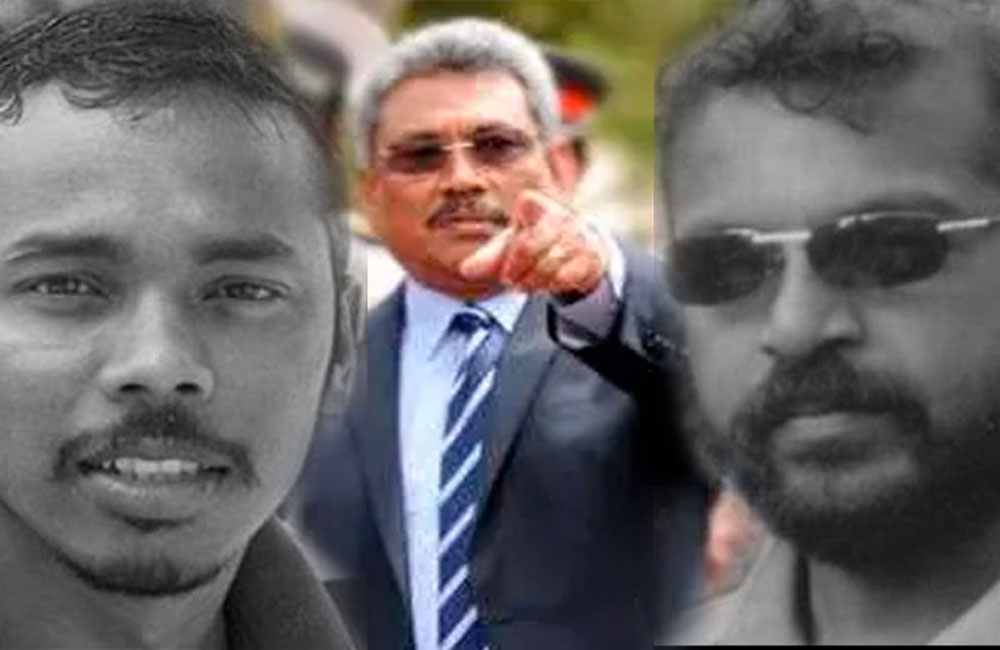
Notice re-issued on Gota on Lalith-Kugan Case
The Supreme Court on Wednesday (19) granted permission to issue notice on Former President Gotabaya Rajapaksa to appear in court on the 15th of December 2022 over the case filed over the enforced disappearance of social activists Lalith & Kugan, back in 2011.
Sri Lanka's Supreme Court on Wednesday (19) granted permission to issue notice on Former President Gotabaya Rajapaksa to appear in court on the 15th of December 2022 after a fresh petition was filed requesting to annul the Court of Appeal’s decision preventing the enforcement of an order issued by the Jaffna Magistrate's Court on former President Rajapaksa with regard to the enforced disappearance of Lalith Weeraraj and Kugan Muruganandan in 2011 within the Jaffna High Security Zone.
Earlier, the Supreme Court had granted permission to the complainant to sent notice to then Defence Secretary Gotabaya Rajapaksa to appear in court on Wednesday (19).
Attorney Nuwan Bopage apearing for the complainant requested permission from the Supreme Court to sent notice to the Wijerama Mawatha residence of the Former President, as it has come to light that Rajapaksa is no longer living at his residence located in Mirihana.
Permission was granted to re-issue notice on the Former President by the Supreme Court Judge-bench comprising of Justices Gamini Amarasekara, Yasantha Kodagoda and A. H. M. D. Nawaz.

Sagara to mobilise ruling MPs for 22A debate
Deputy chief government whip Sagara Kariyawasam is to organise the ruling MPs for the House debate on the draft 22nd amendment to the constitution, reports say.
Prasanna Ranatunga, who is the chief government whip, will miss the entire duration of the debate owing to a private visit to France.
In addition, general secretary of the SLPP, Kariyawasam has openly declared that his party would not support certain clauses in the 22 amendment.
Party leaders have decided to have the debate on the second reading of the 22A draft bill on October 20 and 21.
MPs are free to vote as they wish
SLPP MPs have the freedom to use their vote as they wish at the vote on the amendment, said cabinet spokesman Bandula Gunawardena.
Since the cabinet has already approved the amendment, all ministers will support the related draft bill, he has told the media.
The minister believed the amendment would take place in a manner that fulfills the wishes of the people.
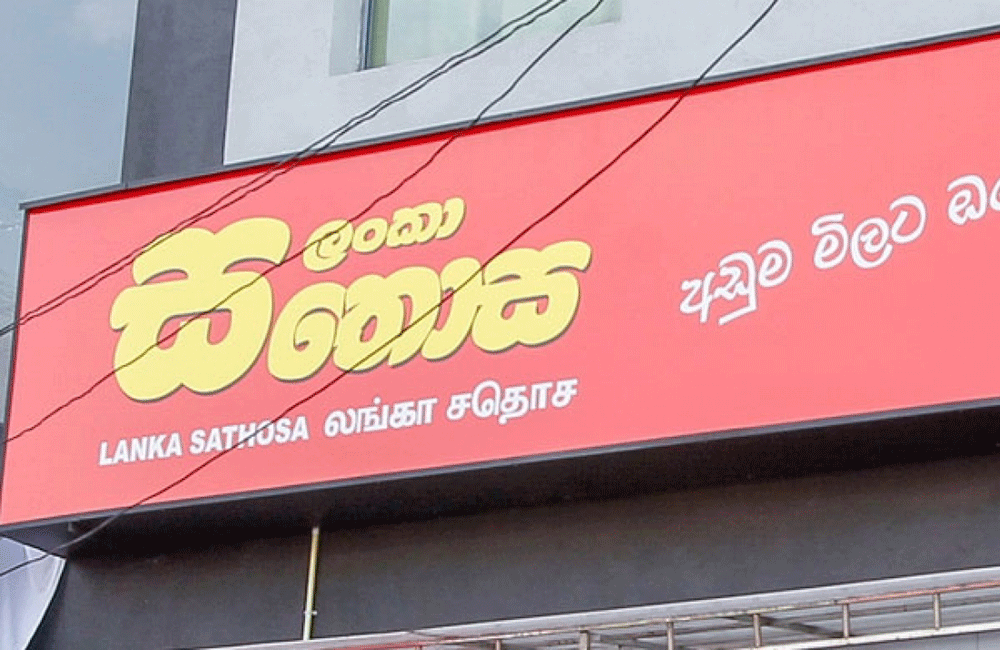
Lanka Sathosa reduces prices of 06 items
State-owned Lanka Sathosa has announced a reduction in the prices of 06 items.
According to Lanka Sathosa, the price drop comes into effect today, 19th October 2022.
The reduced prices of the 06 items per kilogram are as follows:
Garlic reduced by Rs. 60 New price – Rs. 490
- Wheat flour reduced by Rs. 55
New price – Rs. 320
- Sprats reduced by Rs. 50
New price – Rs. 1,450
- Lentils reduced by Rs. 30
New price – Rs. 285
- White sugar reduced by Rs. 15
New price – Rs. 260
- Imported white rice reduced by Rs. 5
New price – Rs. 169
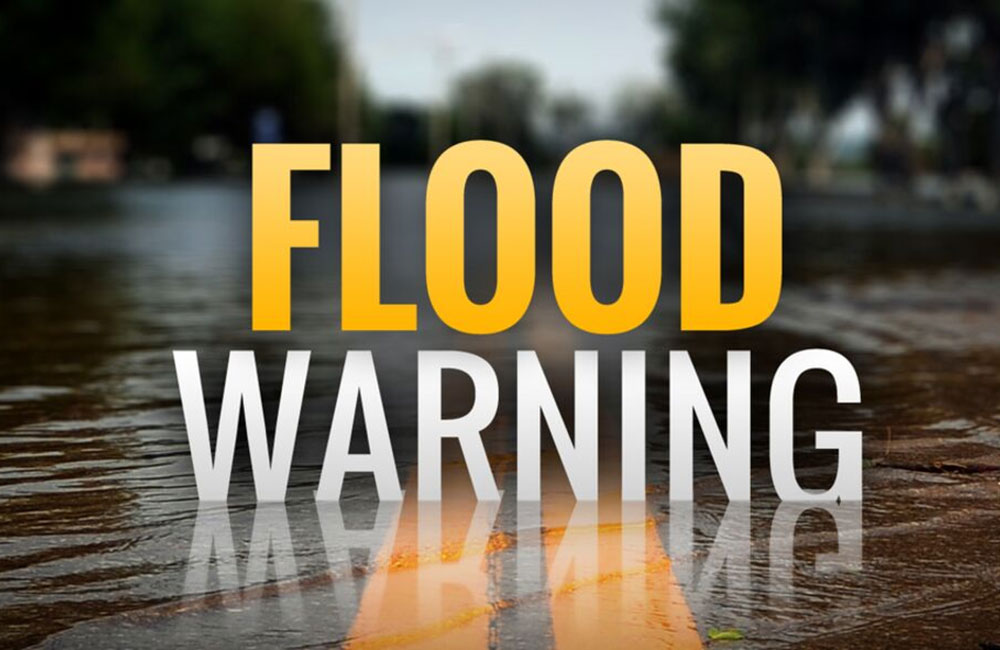
DMC issues flood warnings
The Disaster Management Centre issued rising water levels in the Kelani ganga, Kalu ganga, Kuda ganga and Gin ganga.
In a statement, the Centre also released minor flood warnings to Kelani Ganga (N’ street and Hanwella), Kuda Ganga (Kalawellawa) and Attanagalu Oya (Dunamale).
Meanwhile, the Meteorology Department stated the current heavy rains are expected to continue, due to the influence of the Intertropical Convergence Zone (ITCZ – The region where the Northern Hemispheric wind and the Southern Hemispheric wind converge) located in the vicinity of the island. Showers or thundershowers will occur at times in Western, Sabaragamuwa, Central and North- Western provinces and in Galle and Matara districts.
Heavy showers above 100 mm can be expected at some places in Western, Sabaragamuwa and Central provinces and in Galle and Matara districts. Showers or thundershowers will occur elsewhere over the island during the afternoon or night. Fairly heavy showers above 75 mm can be expected at some places. General public is kindly requested to take adequate precautions to minimise damages caused by temporary localised strong winds and lightning during thundershowers.
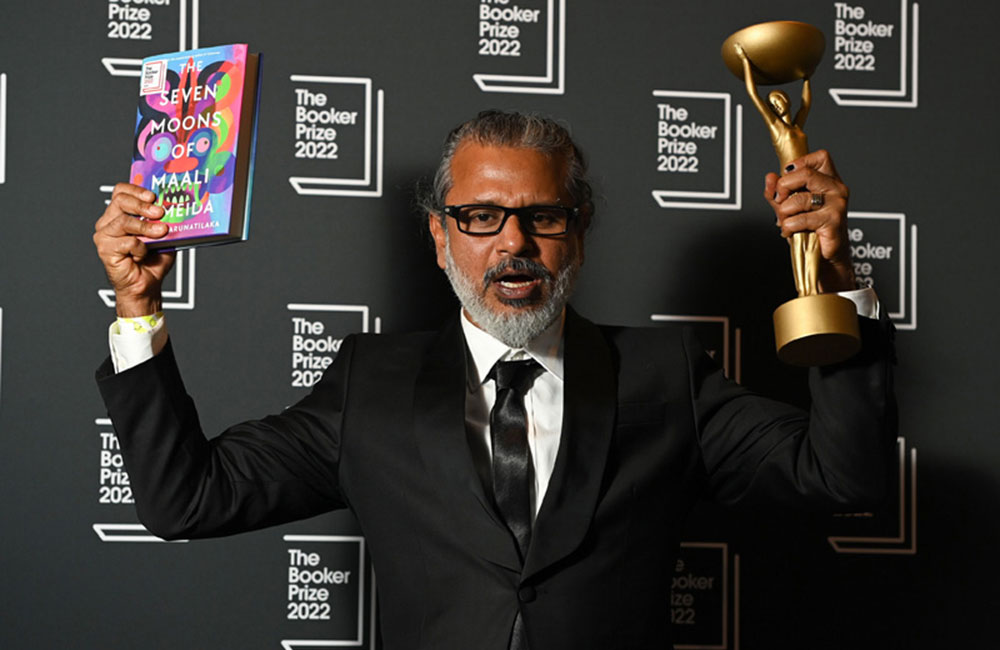
Booker Prize 2022: Sri Lankan author Shehan Karunatilaka wins with supernatural satire
The Seven Moons of Maali Almeida by Shehan Karunatilaka, a supernatural satire set amid a murderous Sri Lankan civil war, has won the Booker Prize.
The Sri Lankan writer's novel is about a photographer who wakes up dead, with a week to ask his friends to find his photos and expose the brutality of war.
Camilla, the Queen Consort, presented the prize, and the author said it had been "an honour and a privilege" to be on the shortlist.
Pop singer Dua Lipa was the star guest.
The prestigious £50,000 prize, for a single work of fiction published in the UK in English, also gives the other five writers on the shortlist £2,500 each.
The writer said he decided in 2009 to write "a ghost story where the dead could offer their perspective" after the end of the Sri Lankan civil war, "when there was a raging debate over how many civilians died and whose fault it was".
Head judge Neil MacGregor praised the "scope and the skill, the daring, the audacity and hilarity" of the novel, calling it an "afterlife noir" which "takes the reader on a rollercoaster journey through life and death".
He said the judges' decision had been unanimous, adding all of the shortlisted books were "all really about one question, and that is what's the point of an individual life?"
Karunatilaka said as he accepted his prize: "My hope is that in the not too distant future... Sri Lanka has understood that these ideas of corruption and race-baiting and cronyism have not worked and will never work.
'I have self-censored'
"I hope it's in print in 10 years... if it is, I hope it's written in a Sri Lanka that learns from its stories, and that Seven Moons will be in the fantasy section of the bookshop, next to the dragons, the unicorns and will not be mistaken for realism or political satire."
He later added that he had "self-censored" a couple of short stories after author Salman Rushdie was stabbed in August, having faced years of death threats for his novel The Satanic Verses, which some Muslims see as blasphemous.
"I was in the process of publishing a collection of short stories when this incident happened, and I discovered a couple which I don't think was offensive to any religion," Karunatilaka said.
"But my wife said, can you not do that? You've got two young kids. This story is not that good. Just leave it out."
He added that "this is something that hangs over all of us if we're writing in South Asia, especially writing about politics or religion".
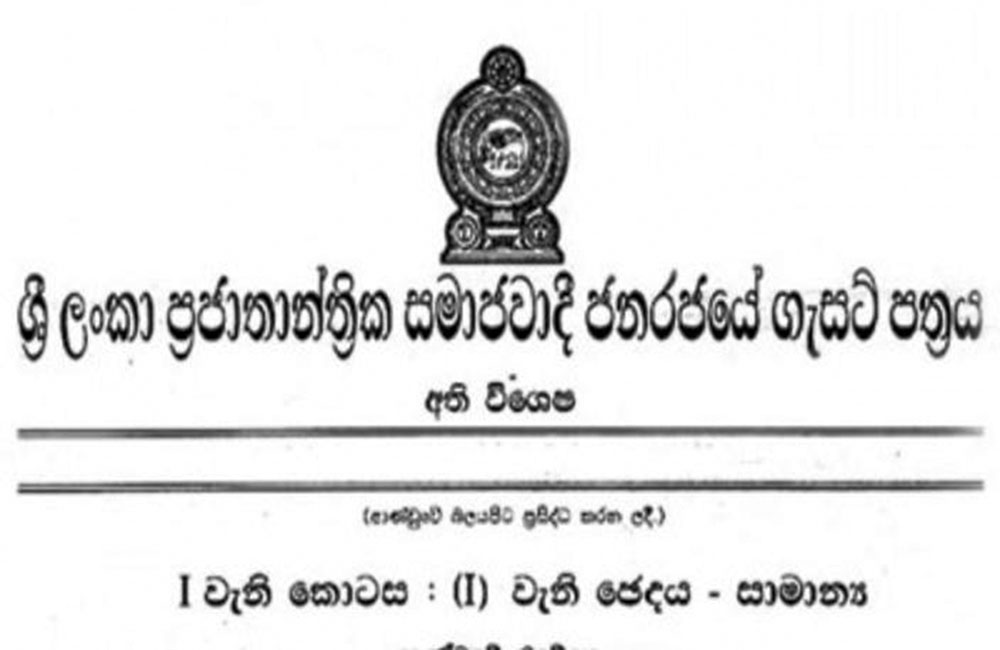
Subjects under four State Ministries, gazetted
The subjects and functions of four State Ministries – State Ministry of Power and Energy, Media, Transport and Highways and Health have been gazetted.
A number of institutes including the Ceylon Petroleum Corporation/Ceylon Petroleum Storage Terminals Limited, Trinco Petroleum Terminal (Pvt) Ltd, and Petroleum Development Authority of Sri Lanka will be under the purview of the State Ministry of Power and Energy.
Sri Lanka Post, the Department Of Government Printing and the Sri Lanka Institute of Printing will be under the purview of the State Ministry of Media.
Four institutes including the Department of Motor Traffic, National Council For Road Safety and National Transport Medical Institute will be under the purview of the State Ministry of Transport and Highways
Under this, institutes controlled by the Road Development Authority and 'Sahasya Investments Limited' will be included.
The Private Health Services Regulatory Council, 1990 Suwa Seriya Foundation and the National Authority on Tobacco and Alcohol will be under the purview of the State Ministry of Health.
In addition, the State Ministry of Indigenous Medicine announced that it will control the subjects and functions of several institutes including the Department of Ayurveda, Sri Lanka Ayurvedic Drugs Corporation and the Ayurvedic Medical Council.
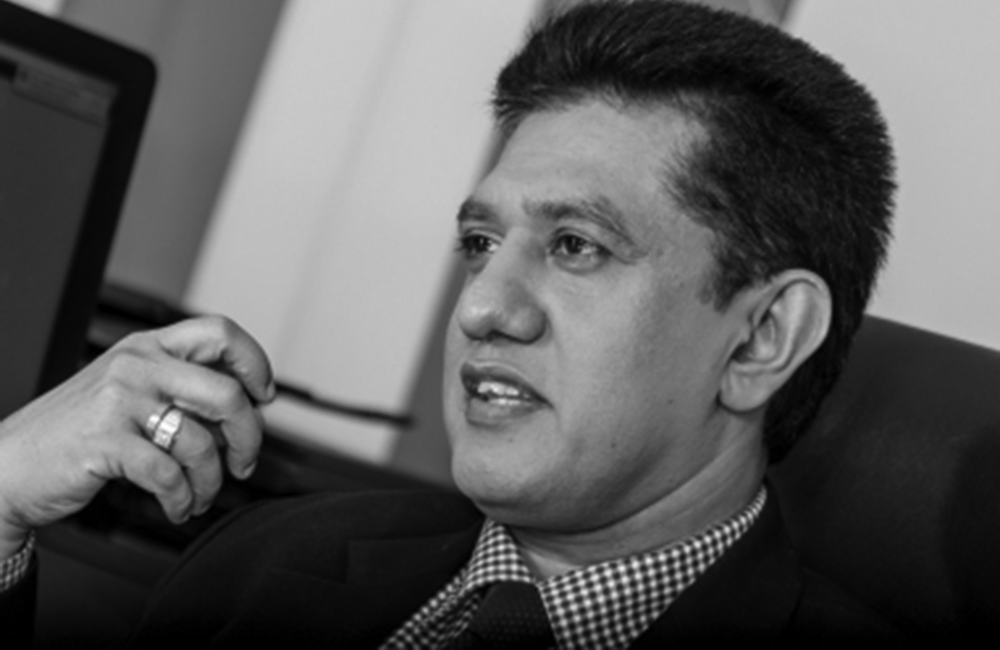
Charitha Herath nominated to serve on COPE Committee
Former Chairman of the Committee on Public Enterprises (COPE) Prof. Charitha Herath has been nominated to serve in the new COPE Committee.
Addressing Parliament today (18), Deputy Speaker MP Ajith Rajapakse announced that Prof. Charitha Herath will fill the vacancy which occurred after the resignation of opposition MP Dr. Harsha de Silva.
Following the announcement of a 27-member COPE Committee, Prof. Herath had slammed the government, especially President Ranil Wickremesinghe and Prime Minister Dinesh Gunawardena, for omitting his name.
Thereafter, on 4th October, Opposition Leader MP Sajith Premadasa proposed in Parliament to nominate Prof. Charitha Herath to the new COPE committee.
MP Premadasa said Samagi Jana Balawegaya MP Dr. Harsha de Silva who was appointed a member of the Committee has taken a voluntary decision to step down from the COPE committee.
Dr. Harsha de Silva had announced his resignation on the grounds of holding the post of Chairman of the Committee on Public Finance and the workload related to the Committee.
MP Premadasa said as such, the Opposition has decided to propose Prof. Charitha Herath to fill the vacancy on the COPE Committee.
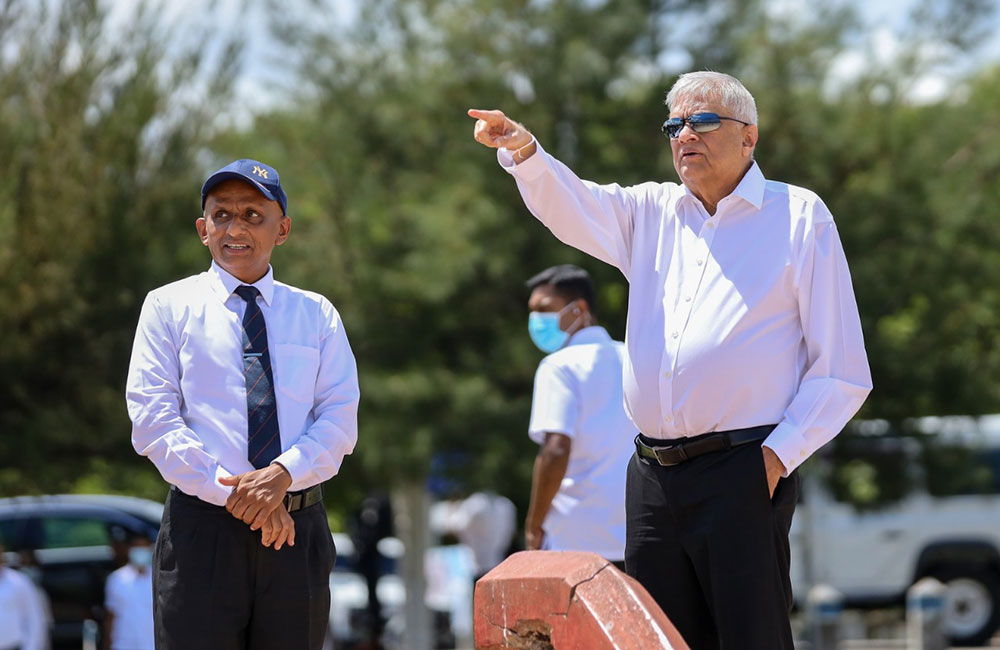
Sri Lanka should work with India to develop Trincomalee as strategic harbor – President
President Ranil Wickremesinghe said that the Trincomalee District Strategic Development Plan is not targeting elections, but a project that has been initiated to benefit future generations.
The President said that Sri Lanka values India’s assistance in implementing the Trincomalee district development project, as our closest neighbour.
He made this statement by joining the special discussion on the Trincomalee District Development Plan, held today (14) at the grounds of Trincomalee Orr’s Hill.
He recollected the objections raised when the Trincomalee oil tanks were to be handed over to India, adding that the country would not have faced a fuel crisis if the decision to provide the oil tanks had received the green light to be fully implemented.
Prior to the commencement of the discussion, President Wickremesinghe inspected several places proposed to be developed under the Trincomalee District Development Plan.
The President was able to view the locations proposed under the Trincomalee District Development Plan from the Orr’s Hill vantage point.
Further, following the discussion, the President also inspected the proposed project to develop the beach and recreation facilities near the Trincomalee Gandhi Roundabout, as a tourist attraction.
Meanwhile, the President who also met a group of Trincomalee District regional journalists and had a cordial discussion.
President Ranil Wickremesinghe, further commenting in the discussion regarding the Trincomalee District Development Plan said,
“We are not initiating this project targeting the next election, but for the benefit of the next generation. In 2023 we celebrate the 75th Anniversary of Independence. There are another 25 years left to complete 100 years of independence. This work must be done before that.
Therefore, let us cut down the 2018-2050 plans and work on achieving them between 2020-2048. We must make significant progress in this Eastern Province during that period. I don’t claim that it is a task that is achievable in the next five years. What we say is that it should commence. We must move on from there.
Back when Polonnaruwa was the capital, the Trincomalee port was a significant port. Back then, we were shown the Bay of Bengal map around Trincomalee. The Bay of Bengal region is still underdeveloped.
It will take another 10-15 years to achieve that development. Thailand’s development has yet to reach the Western Bay of Bengal region. It is yet to kick off in Myanmar. This development has just started in Bangladesh; accordingly, work is being done in Java and Sumatra. It will become a significant port only in the next 10-15 years. Our endeavour is to make Sri Lanka a strategic port.
The eastern port should be transformed into a deep water port. The Eastern Province plays an important role in naval affairs. The Eastern port should be made into a leading strategic port. That means we can carry out our own naval operations. By that time, I think our navy will have much larger vessels. It is important that we work together with India when we plan these activities because India is located much closer to us.
Currently, India is discussing several programs with Sri Lanka. Therefore, we have to continue with the work on the Sampur Power Plant. If there are objections to it, we will have no choice but to taken directly under the government and continue with the work. We inked the Trincomalee Port Agreement in 2003.
Many objections were raised by the unions since 2003 against the provision of the oil tanks to India. Had the Trincomalee oil tank farm been given to India, we would have had fuel; we would have neither had to stay in queues nor to resort to riots. These problems arose because of the shortage of fuel. If we had given the oil tank farm to India back then, there would not have been any problems today.
Such obstacles should not be allowed to transpire again. We should do this on behalf of the people of this area. I will submit this plan to the Parliament and have it endorsed. It should be done because, the governments could change, parliaments could change, but policies should remain the same.
So we are working to move forward without obstacles. We are working with India on renewable energy with the aim of making Trincomalee an energy hub based on the existing relations between Trincomalee and India. With the development of renewable energy, value additions such as green hydrogen and green ammonia. Therefore, we need a port to export green hydrogen. As such the potential in Trincomalee should be taken into consideration.
When considering the North, North Central and Eastern provinces the Trincomalee port should be the central hub. Perhaps, in the future, this would pave a route to Singapore. There is immense potential for such improvement. We should make these developments considering these aspects. We cannot limit the economic activities of this port solely to the Trincomalee District. This should be connected with the cities of Anuradhapura, Vavuniya and Dambulla. The districts of Wanni, Eastern and North Central are responsible for the bulk of agricultural production. If we are to export agricultural produce, this region should be the starting point.
Today we re-export wheat flour but we do not grow it here. Yet, we re-export it, which is done by Prima. Wheat flour is one of our main exports commodities. We import it and re-export it. There are other commodities that could also be exported and we should consider it.
India has agreed to develop industries in this province. Therefore, we should create an industrial zone. I have proposed a joint mechanism between India and Sri Lanka towards this endeavour. Then, the port will also be connected to it and we are planning to establish a joint task force for this purpose.
The President further stated that prior to seeking the opinions of this task force, we need to consider the economic situation. From the economic point of view, we have the tourism industry. In particular, there is the cultural triangle of Anuradhapura, Polonnaruwa, Dambulla which will attract more tourists to this region.
Although Trincomalee has an airport, it cannot accommodate large aircrafts. Therefore, we would have to upgrade Hingurakgoda or Vavuniya into an international airport. There is an opportunity to develop the tourism industry from Trincomalee to Batticaloa.”
In conclusion, the President highlighted the need to create a complete plan to develop the Eastern and Northern Provinces. Since Trincomalee is located between the north and the east, he also noted that a large part of Anuradhapaura and Polonnaruwa belongs to the Northern Province.
This joint program cannot be completed in 05 years but will take 20-25 years. It took 10 years to complete the Mahaweli Development Project. We hope to have preliminary discussions regarding this and brief the Cabinet prior to proceeding with the development initiatives.
Minister Nimal Siripala de Silva, State Minister Dilum Amunugama, Senior Presidential Adviser on National Security and Chief of Staff to the President Sagala Ratnayake, Secretary to the President Saman Ekanayake, Eastern Province Governor Mrs. Anuradha Yahampath and Trincomalee District Secretary, Eastern Province Chief Secretary, Governor’s Secretary and officials of line institutions including Sri Lanka Ports Authority, Board of Investment, Urban Development Authority and Principal Planner-Designer of Surbana Jurong , Ketan Kulkarni, who provided advisory contribution in the formulation of the Trincomalee District Development Plan. Senior officials of the Tri- forces and the police of the Eastern Province also participated in this discussion.
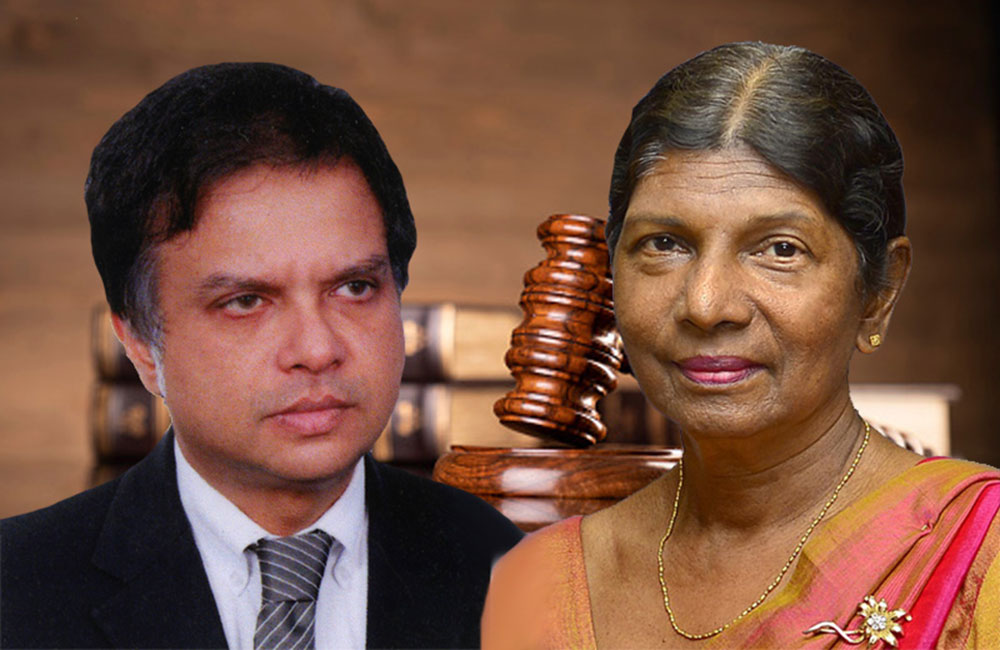
Supreme Court orders legal action against two CBSL Monetary Board members
The Supreme Court has ordered that legal action be initiated against two members of the Monetary Board of the Central Bank of Sri Lanka (CBSL) Dr. Sanjeewa Jayawardane and Dr. Ranee Jayamaha.
A five-member bench comprising chief justice Jayantha Jayasuriya, Buwaneka Aluvihare, Vijith Malalgoda, L.T.B. Dehideniya and Murdu N.B. Fernando issued the order, while granting leave to proceed with the fundamental rights case no. SC FR 195/2022.
It also directed the petitioners to add the two who are current members of the 28th respondent (CBSL Monetary Board) as 32B and 32C respondents.
The petitioners, Dr. Athulasiri Kumara Samarakoon, Soosaiappu Neavis Morais and Dr. Mahim Mendis, had named 39 respondents including former president Gotabhaya Rajapaksa, former prime minister Mahinda Rajapaksa and former finance ministers, former secretary to the president and also two former CBSL governors and two of the members who served in the monetary board during the period relevant to the fundamental rights application.
The bench directed the CBSL’s Monetary Board to produce all documents, relating to matters referred to by Dr. Jayawardane and Dr. Jayamaha at the meeting of the Committee on Public Enterprise (COPE) on May 25, 2022.
Specifically mentioned in the order are the suggestion said to have been made, that the Republic should seek relief and/or other financial assistance from the International Monetary Fund, and objection to and/or otherwise disagreement expressed regarding the artificial maintenance of exchange rate of the Sri Lankan Rupee at/or at a level below 203/- as against the US Dollar.
The said documents are required to be submitted to the Court not later than November 30, 2022.
Based on the statements made by Dr. Jayawardane and Dr. Jayamaha at the COPE had been referred to as evidence against certain respondents in this case by the petitioners.
Some of the said respondents by their affidavits have denied the averments together with proof to show that the statements made by the two at the COPE meeting are false and misleading.
The CBSL has released a document indicating Dr. Jayamaha and Dr. Jayawardane as the persons who have received highest payments as Monetary Board members; receiving Rs 3,225,000/- and Rs 2,725,000/- respectively.
Copy of the CBSL document is found below.
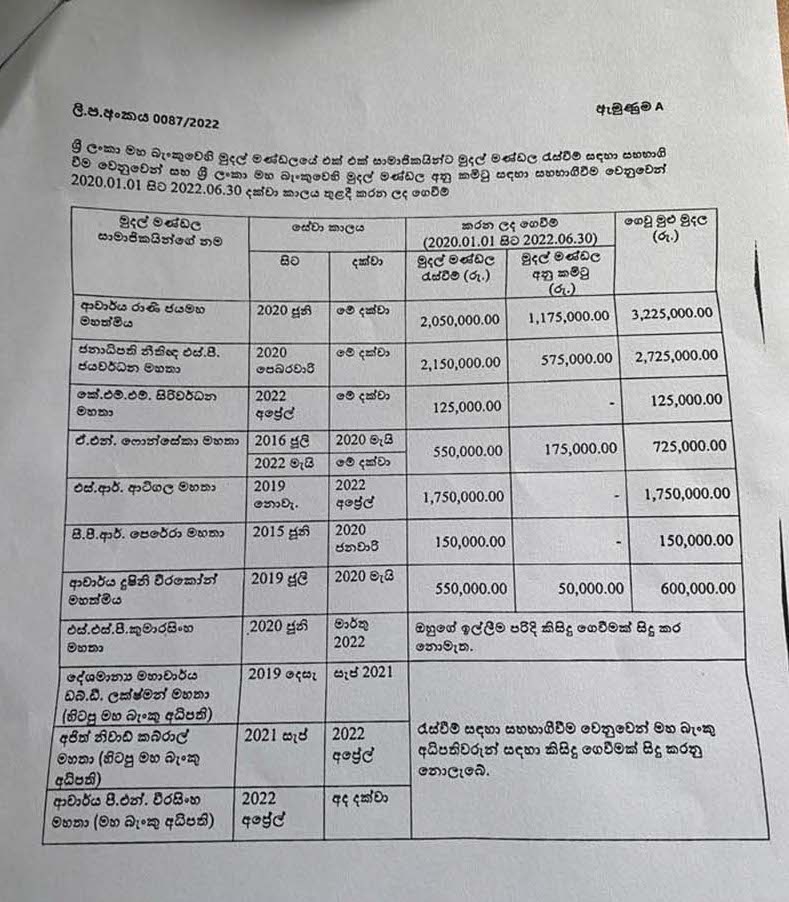
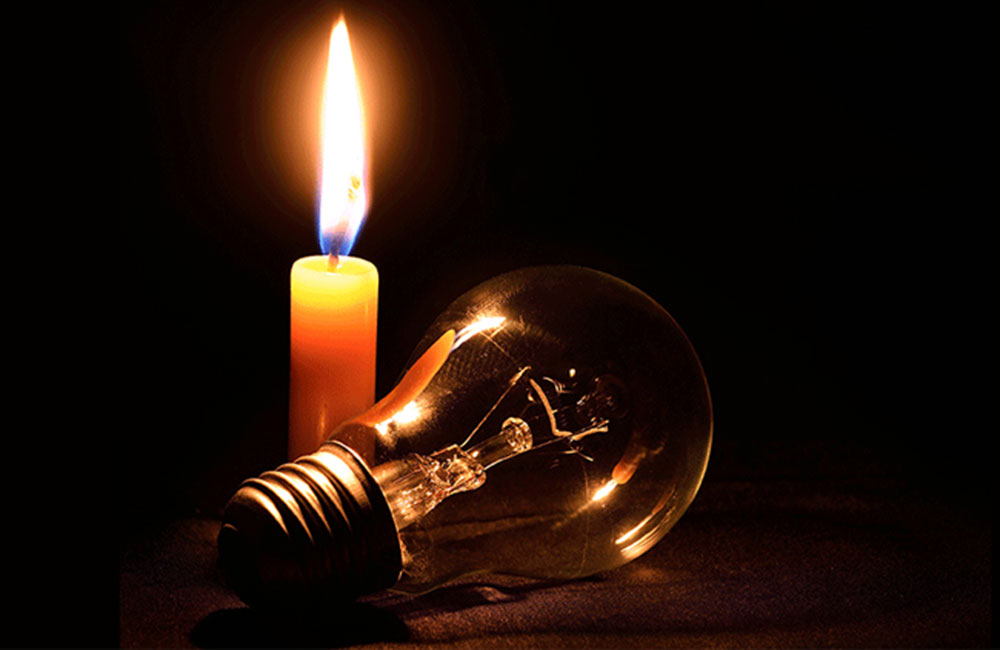
Power cut schedule for 15th, 16th & 17th October
The Public Utilities Commission of Sri Lanka approved power cuts of 1 hours and 20 minutes on 15th and 16th and 2 hours and 20 minutes on 17th October.
Accordingly, power cuts will take place as follows;
15th & 16th – Groups ABCDEFGHIJKLPQRSTUVW – 1 hour and 20 minutes during night
17th – Groups ABCDEFGHIJKLPQRSTUVW – 1 hour during daytime and 1 hour and 20 minutes during night.

Petrol & Diesel prices reduced from Monday (17)
Sri Lanka's Ministry of Power and Energy has decided to reduce fuel prices with effect from Monday (17) night.
92 Octane Petrol (1 Litre) reduced by Rs. 40/- to Rs. 370/- per liter
Auto Diesel (1 Litre) reduced by Rs. 15/- to Rs. 415/- per liter.
Prices on other petroleum products will remain the same.
Lanka IOC announced that it has decided to reduce fuel prices, to the same rates of the CPC.
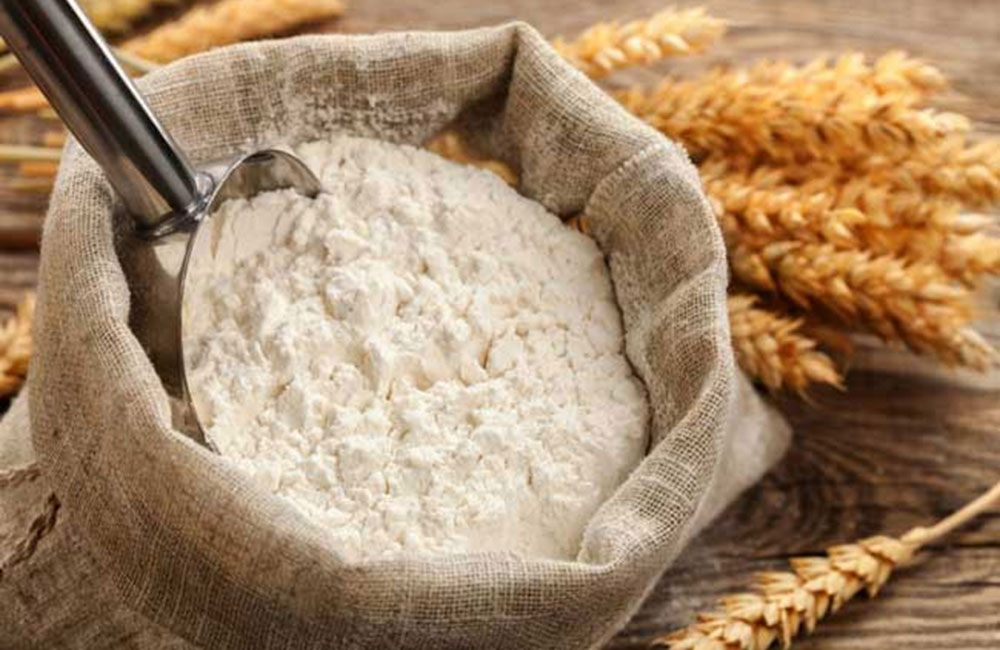
Wholesale price of wheat flour reduced
The wholesale price of wheat flour has been reduced by Rs. 85, the Essential Food Commodity Importers & Traders Association announced today (14).
The Association said the wholesale price of wheat flour has been reduced from Rs.375 per kilo to Rs.290 per kilo.
The price reduction will come into effect from midnight today, it added.
However, Sri Lanka’s primary wheat flour suppliers are yet to announce price revisions to their wheat flour products.
Page 284 of 660